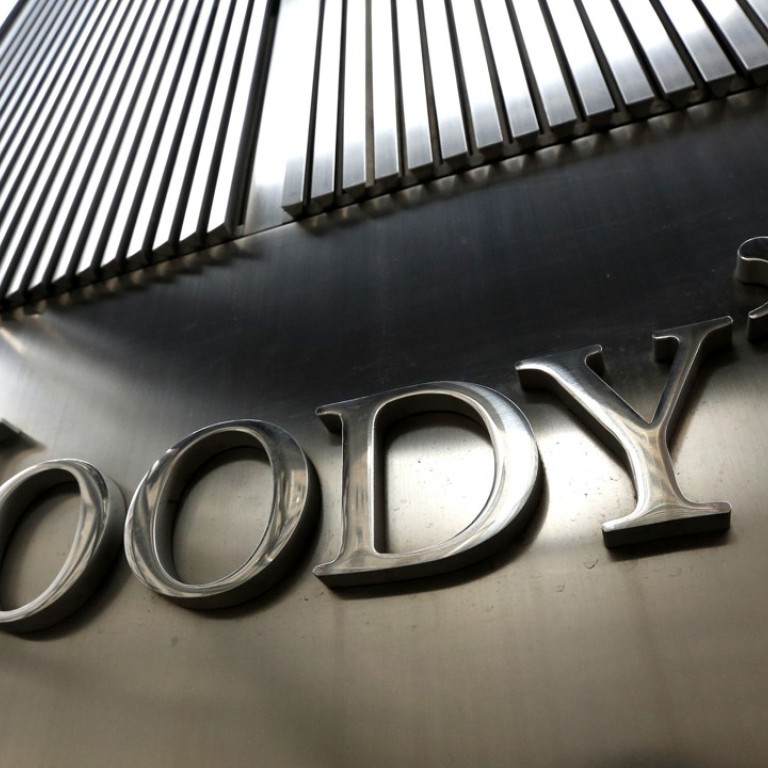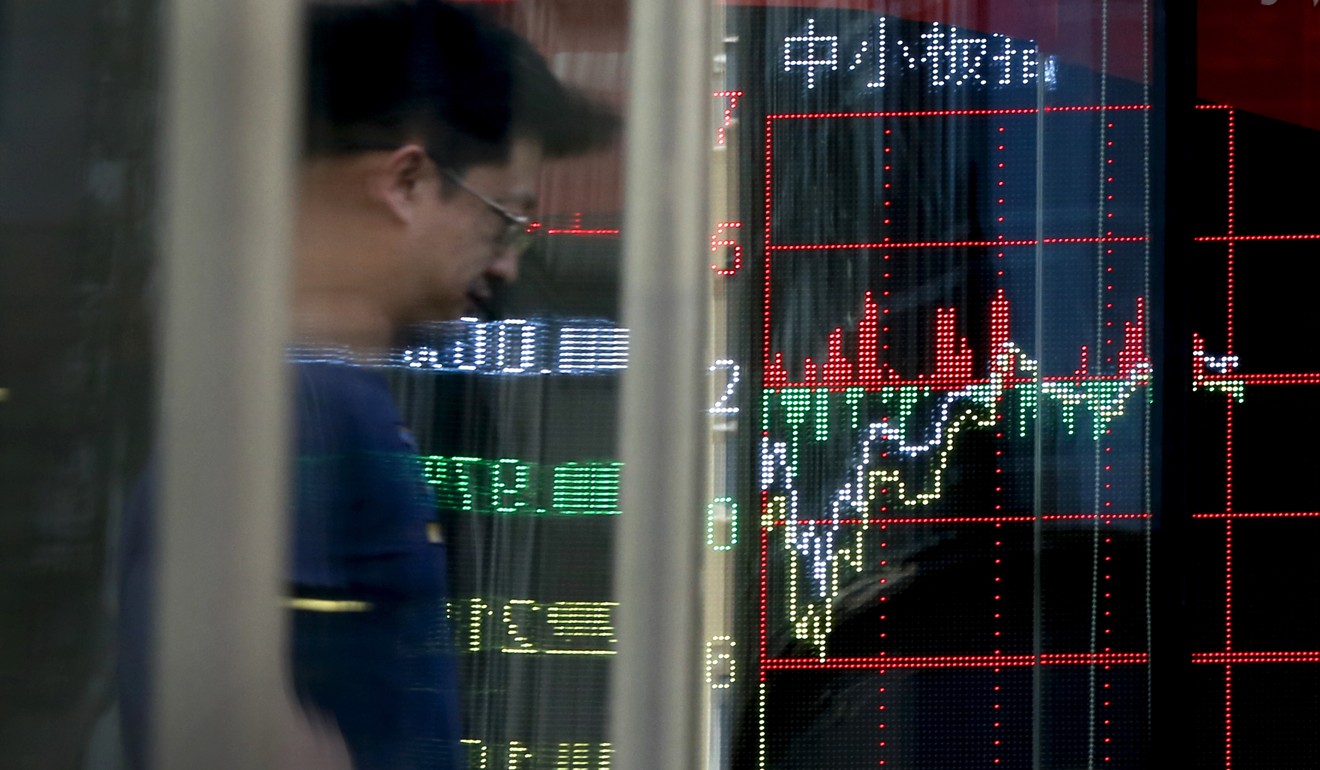
Moody’s: Stable outlook for Asian banks in 2019 despite slowing economic growth, challenging markets
- The US-China trade war may weigh on bank results, particularly if it escalates further in 2019, according to the rating agency
Moody’s Investors Service has projected a stable outlook for Asian banks, including mainland China lenders, in 2019, despite a slowing economic environment and challenging market conditions.
The credit rating agency said the trade war between the United States and China could weigh on bank results next year, ranging from a downturn in bank financing for trade and manufacturing to a slowdown in economies with a large exposure to trade.
Financial markets also were expected to remain volatile over the next 12 months, Moody’s said in a research report on Thursday. The Hang Seng Index and the Shanghai Composite indices have flirted with bear territory this year.
“The banks' creditworthiness will stay broadly stable in 2019 because of the still-healthy economic fundamentals and good credit buffers,” Eugene Tarzimanov, a Moody's vice-president and senior credit officer, said.

“Growth will still be solid in advanced economies, though the growth outlook for emerging markets is more cloudy, with tightening monetary policy, rising trade protectionism and slower demand from China,” the rating agency said.
“The generally supportive operating environment will help banks to preserve the stronger capitalisation achieved in recent years, a credit positive, and still low interest rates will support borrowers’ repayment capacity and bank asset quality.”
The banks' creditworthiness will stay broadly stable in 2019 because of the still-healthy economic fundamentals and good credit buffers
Moody’s said bank capital buffers had strengthened in much of the Asian-Pacific region in recent years “due to moderate growth in risk-weighted assets, good internal capital generation and stricter regulations”, factors that would underpin lenders’ capital ratios.
It also expected Asian-Pacific governments to remain “supportive” to banks, which will provide uplifts for the lenders’ senior unsecured and deposit ratings. The exception was Hong Kong, which has a bank resolution regime that is designed to reduce the cost to the public of bank bailouts, according to Moody’s.
Trade tensions have been high this year as the US and China have sparred over a US$376 billion trade deficit between the world’s two largest economies and the mainland’s trade practices, including the forced sharing of technology.
US President Donald Trump has placed tariffs on some US$250 billion of Chinese-made goods this year, but has agreed to hold off implementing additional tariffs for a 90-day period after reaching a ceasefire following a meeting with Chinese President Xi Jinping at last week’s G20 Summit in Buenos Aires.
Following the summit, little information has emerged about what the two sides agreed to, with the US saying that China intended to buy more American products.
Trump spooked the financial markets this week after he labelled himself “Tariff Man” and again threatened to impose tariffs if an agreement cannot be reached with China.
“Risk [to China banks] will come from further escalation in trade frictions, which not only weakens the economy but also prompts policies with unintended consequences that interfere with banks’ loan underwriting, as reflected in regulators’ recent call to support lending to privately owned enterprises and small and medium-sized enterprises,” Moody’s analysts Nicholas Zhu and David Yin said in a separate research report.
Moody’s said it expected China’s gross domestic product to slow to 6 per cent in 2019 and 2020, down from a 6.6 per cent forecast this year. Nonetheless, banks and other companies in the financial sector could benefit from a more accommodative monetary policy stance in China, it said.
The slowing economy also would allow Chinese authorities to pursue a more “gradual approach” in its efforts to reduce corporate debt, a campaign that began in late 2016.
“Regulators will maintain their broad policy objective of de-risking shadow banking and interbank activities but could implement coming initiatives at a more measured pace,” the rating agency said.
Moody’s said it had a stable outlook for the financial sector in China next year, including asset managers, insurers and leasing companies.

